As an established speaker, author, and Ginger, I have gathered experience in how to make yourself marketable. I often talk about pitching business ideas by sharing my 3-1-3® Method, and in my recently launched free course I explain how to explore the ideation process and how to communicate (or pitch) your next big idea.
But not everyone wants to launch their own venture and given our current mass re-entry into the workforce, many people are on the hunt for their next job. In a recent talk, I drew a parallel between pitching an idea and pitching yourself for your career.
When it comes to trying to get a job or a promotion, you have to market yourself as if you are your own “company” pitching a business idea and that business idea is YOU.
Join me as I break down the step-by-step process that you can do to land your next dream job or earn that promotion you deserve.
You Don’t Have to be an Expert

One fundamental question for understanding what we need to be marketable is: Do people hire you for your experience or your expertise? Most people think the answer is expertise. But they are misinformed because employers care more about your experience than your expertise.
This should be very empowering because you don’t have to worry about being an expert to get the job; you just have to have experience!
Why? The reason is that experience is what helps you become an expert, through failing and learning.
We know the more mistakes you make, the more times you fail. And the more times you fail the more you learn, and the experience you earn. Hence, the more experience you have, the better chances are that you will be a good employee because a new employer will not be paying for the mistakes you made earlier.
Skills are Priceless

Employers might not come out and say that they only look for experience. What they are going to say is that they’re looking for a certain type of skill set. Skills outweigh gold 10 times to one. Highlighting and being able to showcase the skills that you have is a great way to market yourself. And those skills come from your experiences and lessons learned.
According to some recent studies, employers are currently looking for skills in problem-solving, professionalism, communication, teamwork, leadership, technology, career management, and more importantly, intercultural fluency. We’ll talk more about these skills later.
With that being said, I will share a little secret. The way you come up with your skills is usually through your failures, flaws, and mishaps.
When you realize this, you’re able to own all the stuff that has not gone right and you can use it to your advantage. Your failures, flaws, mishaps, and fears make for great stories to showcase the skills you have acquired over your lifetime.
Share Your Story

When pitching for your career, whether it be for a new job or promotion, you need to get noticed. You might want to get featured in the media, get a bigger social media following, get more engagement, attract talent to your company, or build company culture, all of which can ultimately help you to get hired or noticed for that next promotion!
My advice is to own your experience, and share stories that show how you obtained your skills.
You were probably expecting a more complex answer than that, but that’s it. Your experience is your story and your story is the most powerful thing that you have.
Sharing your story will help your career. This single insight is what will move the needle for you to get hired, to get featured, and to get noticed.
Failing for Success
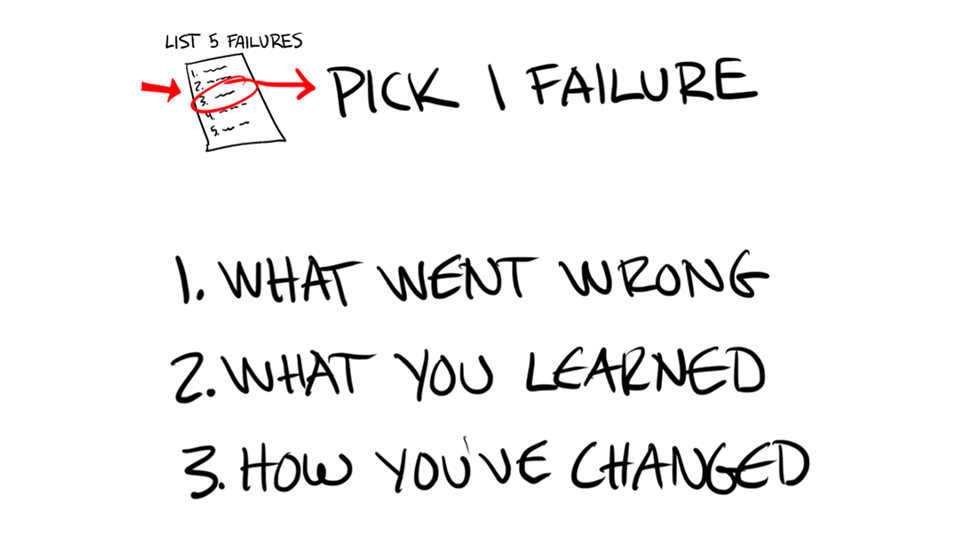
How many times have you failed? Just take a guess. 10, 20, a hundred, a thousand? I think we all have failed quite a bit.
An exercise you can do is list five failures. Think of them as things that have gone wrong. Then pick one of those stores, and ask yourself, as a result of that happening, what are the things you learned, and how have you fundamentally changed as a result? What new skills did you learn, or did you decide to learn as a result of what happened?
These “failure stories” are going to uncover the skills that you’ve learned through your experiences of failure. Essentially, failure is how you obtain your skills. As I have mentioned before, people hire you for your experience. The experience you have are the acquired skills you have learned from failing before!
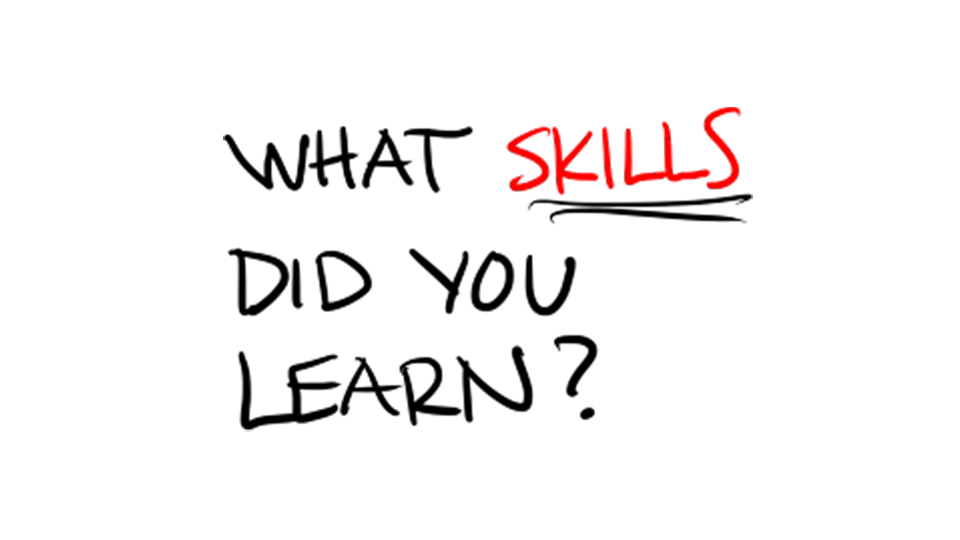
Now repeat this exercise a few times, and you will start to establish the core stories that you can share with people, which highlight your experience and the skills that you have built as a result.
Storytelling 101
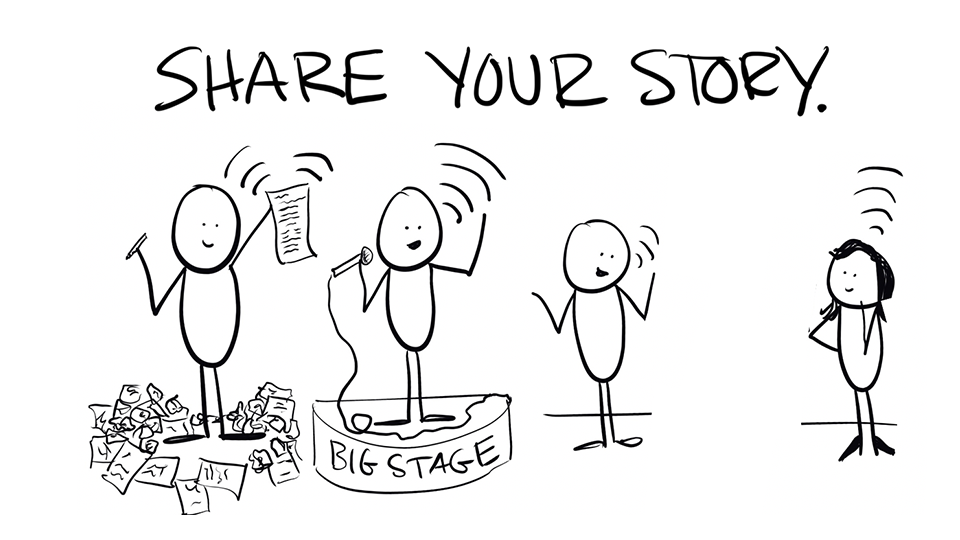
Let’s talk about how you can tell your story in a way that highlights the lessons learned. Stories that you tell should be less than two minutes. One minute might even be a bit better just because these days most people have the attention span of a squirrel.
Your story should focus on the who, what, when, where, how, and why. After you explain your story, you should say, “Now, the reason I’m telling you this is because… “and then you relate the lesson that you’ve learned or the skill that you acquired from said experience.
Hire Me!
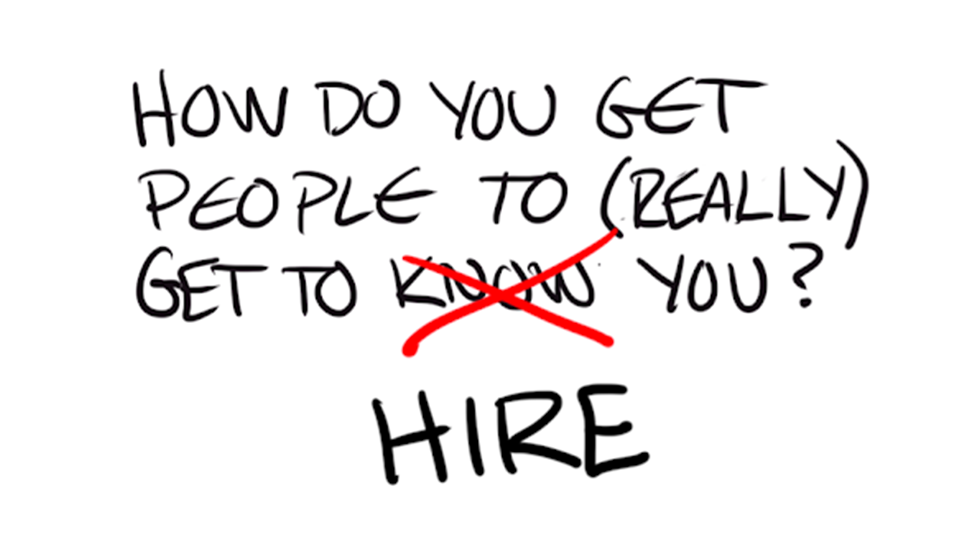
How do you get people to really get to know you? By telling them stories about yourself. I’m going to share with you some specific examples of how your failure stories and learned lessons can help you in a job interview and also for content creation (because after all the point is to get noticed!).

First, let’s talk about the job interview.
You’re interviewing for a job and the interviewer says, “Tell me about your leadership skills,”, “Tell me about your time management skills,” or, “Tell me about your collaboration skills.”
You can answer, “Well, let me tell you a story about a time when I wasn’t that great at time management. You see, here’s the story…(insert a story where things didn’t go as planned, like how one time you missed an important meeting)… and the reason I’m telling you this is because as a result of this mistake, I know that time management is key and that is why I have worked on learning (X, Y, Z) skills for time management.
I now use Trello, and I use these other tools too. Since then, I’ve never missed an appointment.”
This is a formula that you can use if employers ask about certain skills. You can reverse engineer those skills into the lessons that you’ve learned to obtain them through the failure story.
Pro Tip: Before your next interview, look at the job description, and write down a list of possible questions that you might get asked. Then for each question, think of the failure stories of things that have happened which helped you gain the various skills that your employer will be hiring for.
You can also share your failure stories in multiple formats for content creation.

What if you want to write a blog? Here’s a great format to try: Start with your story and explain the lessons that you learned. You can publish the blog to your personal website, business website, or share it on your LinkedIn.
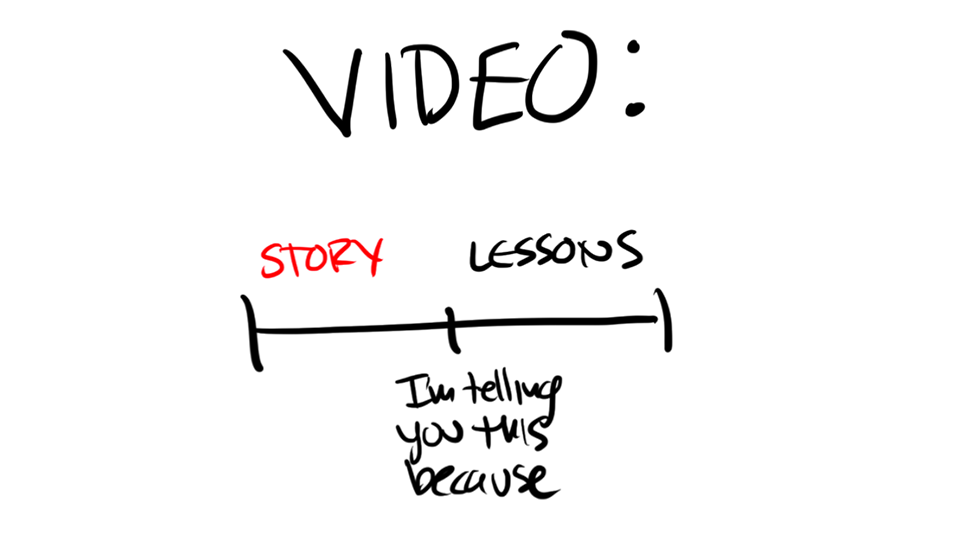
What about making a video? You can share your stories and resulting lessons learned in video format. After you tell the story, say that “The reason I’m telling you this is because…” and then share the lessons that you’ve learned. Keep in mind that your video will be a bit shorter than a long-form blog post: 30 to 90 seconds of recording time is longer than you think!
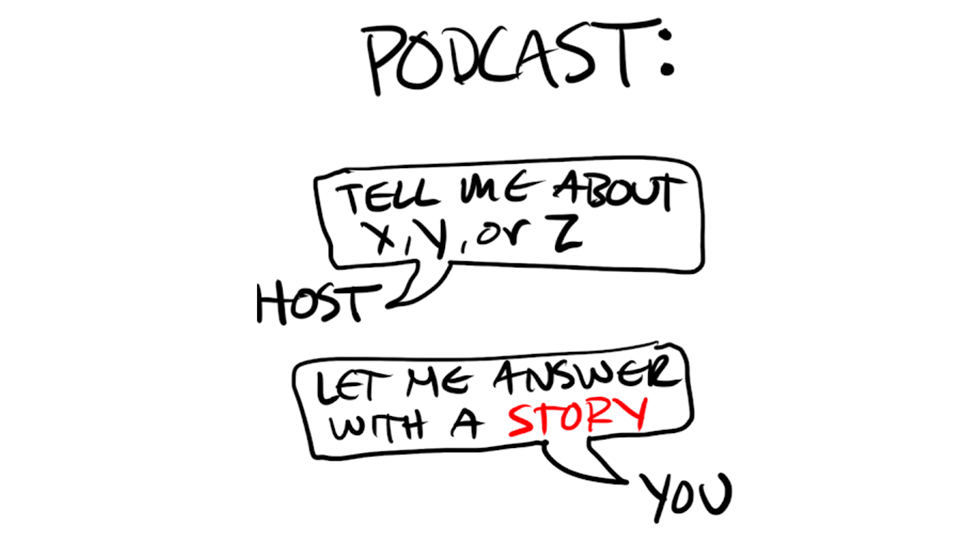
What about a podcast? You’re on a podcast and somebody says, “Hey, tell me about X, Y, or Z,” and you say, “Let me tell you a story about X.” Tell them your story and then say, “The reason I’m telling you this is because…” and proceed with the lesson that you’ve learned from it. In this dialogue format, be prepared to elaborate on the details after the initial telling.
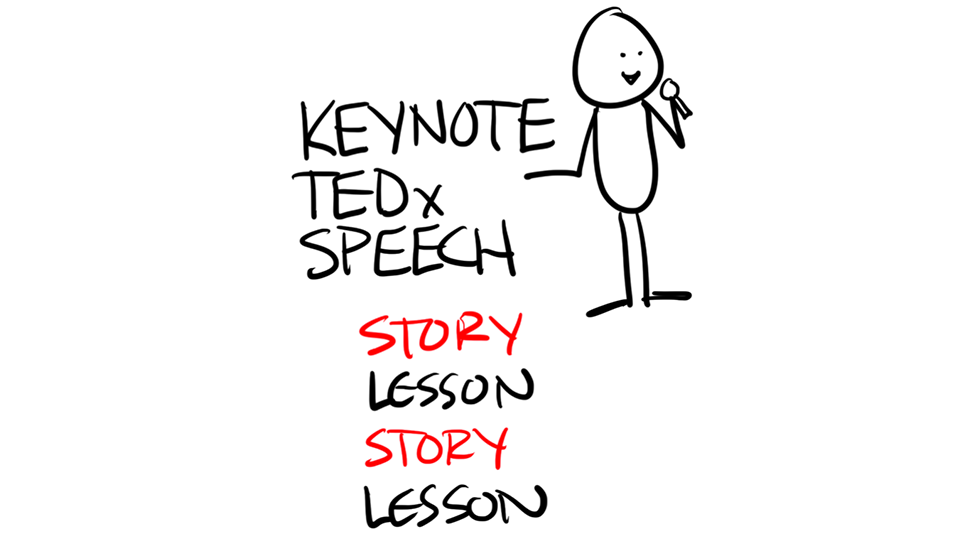
Now, what about giving a speech? What about the TEDx Talk or keynote that you want to do? What about the smaller-scale speech that you’re giving to a team or your community?
The format goes like this: “Here’s the story, here’s the lesson.” Keynotes, talks, and TEDx Talks are just stories with the lessons learned. The nice thing about stories is people like to hear them, particularly if they include all the elements of a good story. They relate to stories. When they can see themselves in your story, that’s when they relate to you!
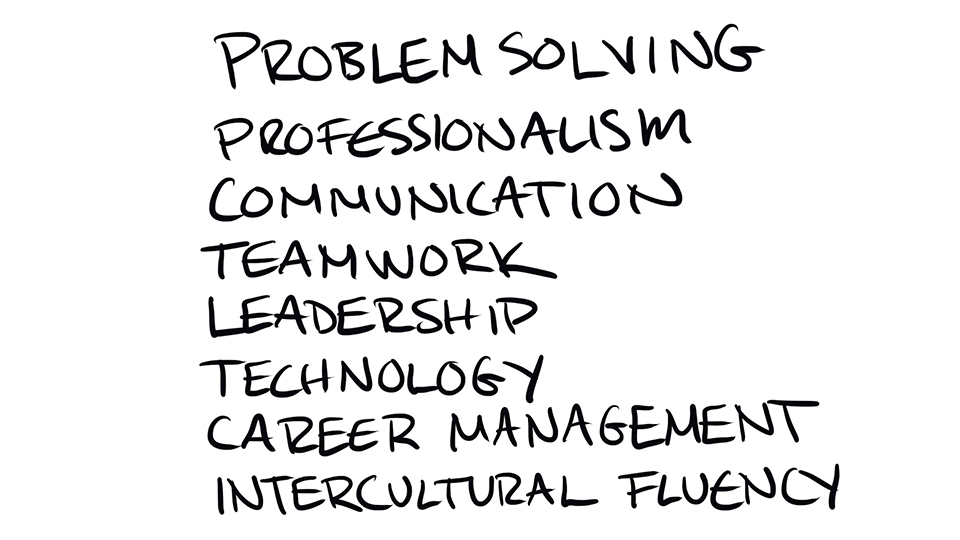
Let’s go back and assess the skills I mentioned before; the skills employers are looking for in their next hire (you).
We will start with the ever-important: communication of your skills. We know that certain jobs require excellent communication skills, whether that’s verbal or written form. Now think, What was a lesson that I learned about communication, and what’s the story behind that lesson?
In your story, there is a part of it where you mention a conflict. When you utilize the storytelling formula and go into a job interview, you can answer the questions with confidence. You don’t have to worry about trying to showcase your expertise. You’re simply going to let your interviewer get to know you a little bit more by telling stories that have shaped you.
The Art of Storytelling

What does this all look like? Well, here’s the formula.
We know your experiences plus your failures are what drive your skills. When you learn, you try, you do. That’s how you acquire new skills.
When you document those skills, whether in a video, podcast, written, or visual format, it becomes your digital footprint. Your digital footprint is your personal brand!
I am letting you know that you have everything you need to be the most hireable, the most dynamic, and the best employee that the person who wants to hire you has ever seen! That’s because you’ve probably failed (and learned) more than the person before you. It’s about being willing to share that sets you apart from the other candidates.
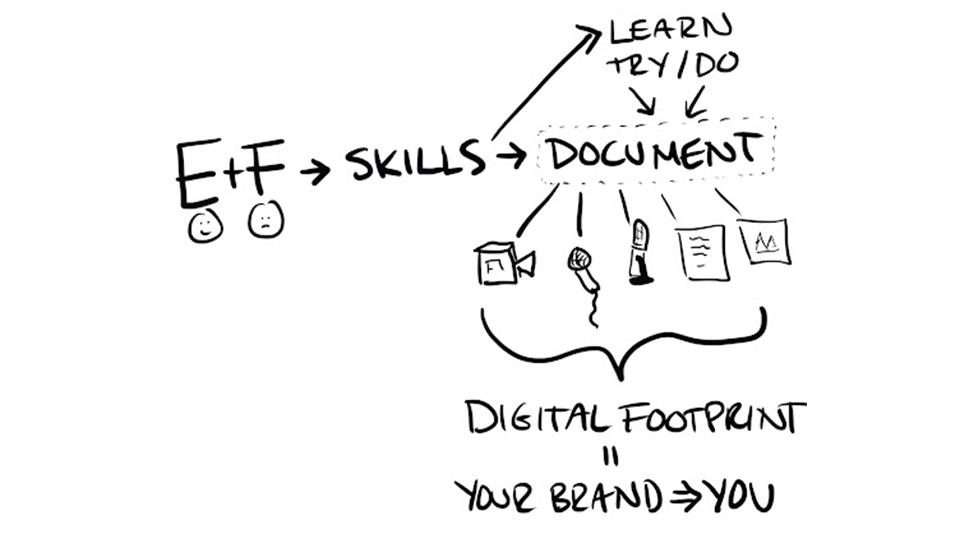
Conclusion
Remember: You don’t have to be an expert to get hired, but you need to have experience and the ability to communicate those experiences in a way that says, “hey I learned from that”. We all have experience because we have all failed. But when we learn from our failures and tell the stories that highlight the skills we have learned, then people will hire us for who we are. Bottom line, the best way to pitch yourself is to tell stories from your past that have helped you gain valuable experience and skills.

If you want to know more about how to pitch yourself for your career, sign up for my weekly newsletter. You can also listen to episodes of my 3-1-3 Challenge podcast or take my free course to take lessons from pitching a business and apply it to pitching yourself.
And you can listen to my World of Speakers podcast, gaining insights from professional speakers on how to tell compelling stories. And if you want to learn more about marketing yourself by building your own personal brand, then check out my website ryan.online for more resources.
This is a Contributor Post. Opinions expressed here are opinions of the Contributor. Influencive does not endorse or review brands mentioned; does not and cannot investigate relationships with brands, products, and people mentioned and is up to the Contributor to disclose. Contributors, amongst other accounts and articles may be professional fee-based.

